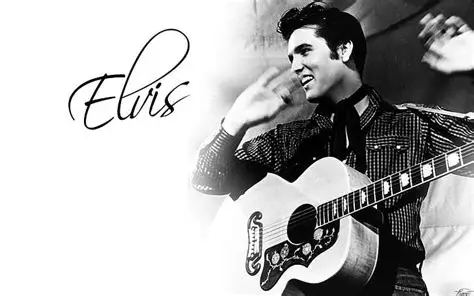Elvis Presley's Manager, the Colonel: A Complex Figure Revealed
By Mantasha - Jul 29, 2025
Acclaimed music historian Peter Guralnick sheds light on the enigmatic figure of Colonel Tom Parker in his latest book, challenging traditional narratives and offering fresh insights into Parker's complex persona. The book's revelations prompt discussions on influential figures in the music industry and the lasting effects of historical music management practices on popular culture. The reassessment invites reflection on power dynamics within entertainment and ethical considerations in artist management.

Elvis Presley via wallpaperflare.com
The intriguing dynamics surrounding ,[object Object],'s manager, ,[object Object],, have long fascinated music enthusiasts and industry insiders alike. Recently, acclaimed music historian ,[object Object], has shed light on this enigmatic figure in his latest book. Guralnick's work delves into the trove of documents left behind by Parker, unraveling a nuanced and multi-faceted portrayal of a man often shrouded in controversy and mystery.
Guralnick's exploration challenges the traditional narrative surrounding ,Colonel Tom Parker,, known for his complex relationship with ,Elvis Presley,. The book offers fresh insights into Parker's persona, presenting a more intricate and humanizing perspective that goes beyond the vilification often associated with his name. By drawing on previously undisclosed materials, Guralnick confronts the dichotomy of Parker's role as both a strategic mastermind and a questionable figure in the music business.
In a broader context, the revelations presented in Guralnick's book spark discussions on the impact of influential figures like ,Colonel Tom Parker, on the music industry's evolution. The intricate interplay between artistry, business acumen, and personal motives exemplified by Parker's legacy invites a deeper examination of power dynamics within the entertainment world. Experts suggest that this reassessment could potentially reshape perceptions of historical ,[object Object], practices and their lasting effects on popular culture.
As the public grapples with the complexities of ,Colonel Tom Parker,'s character, the legacy of figures like him reverberates through the modern music landscape. The revelations unearthed by Guralnick's research not only offer a new lens through which to view a pivotal era in music history but also prompt reflection on the ethical considerations within artist management. This in-depth scrutiny of Parker's persona serves as a reminder of the intricate tapestry that shapes the narratives of music icons and the industry luminaries who guide them, leaving a lingering question: Was ,Colonel Tom Parker, truly a villain, or a misunderstood maestro orchestrating the symphony of fame and fortune?


